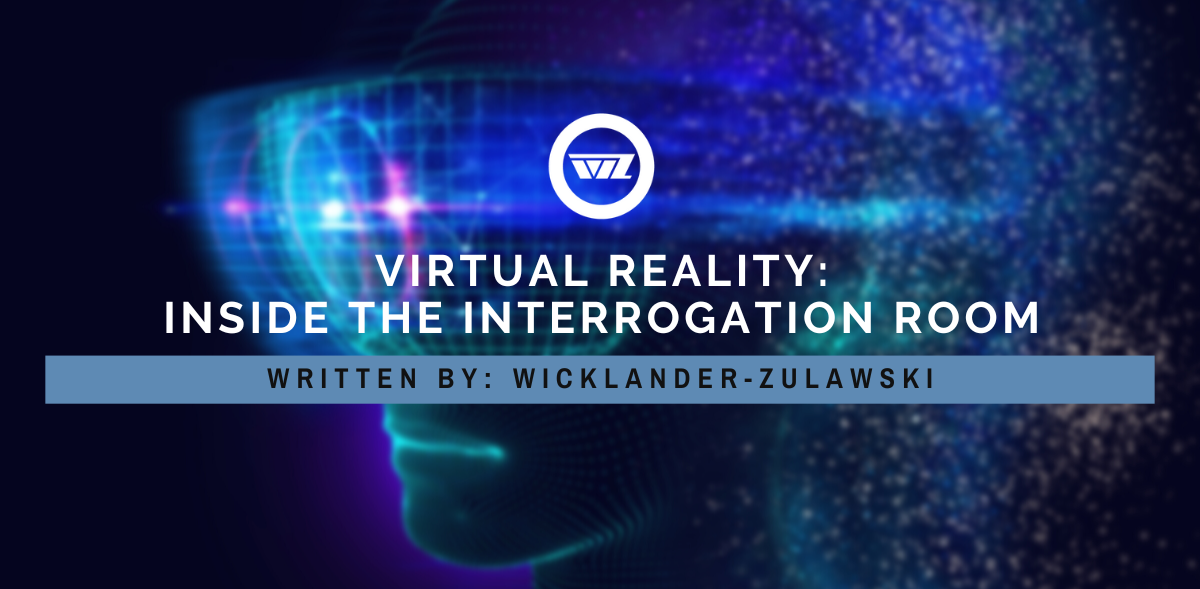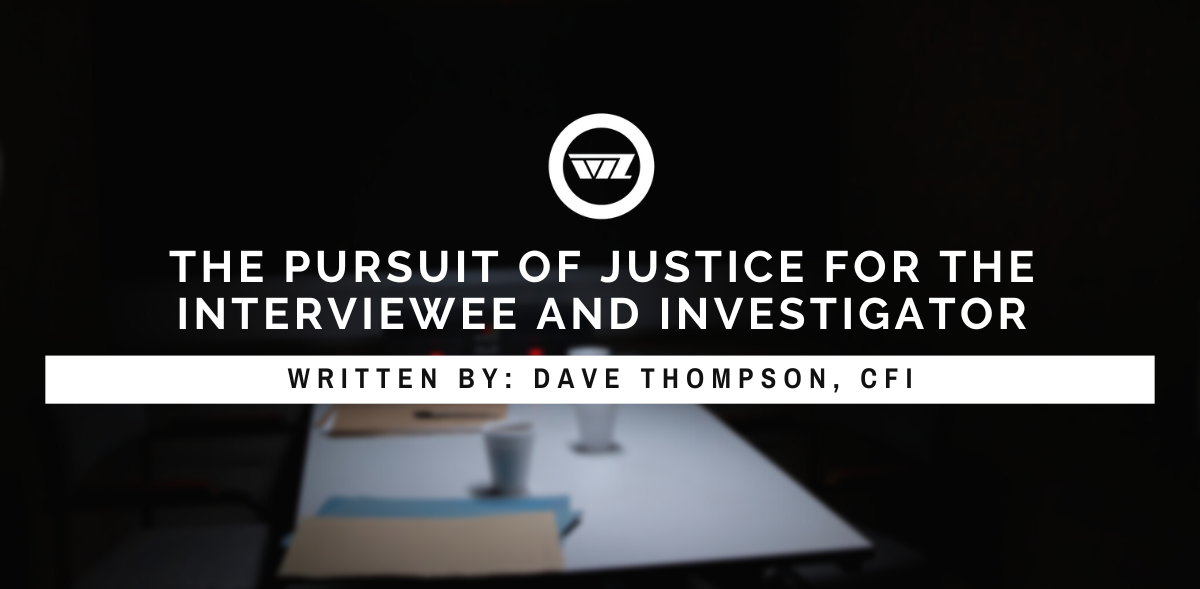Research into the effects of interrogation tactics has been conducted with a variety of methods for decades. Some scholars have created experimental studies in lab environments, while others have observed real-life interviews or case studies to better understand the psychological impact of commonly used tactics. Throughout the evolving landscape of research on interview and interrogation techniques, there is always difficulty in recreating a “real” interrogation that allows scholars, practitioners, or laypeople to understand the feeling of being an interview suspect. Hayley Cleary, PhD, Associate Professor at Virginia Commonwealth University and well-known expert in the field of false confessions, interrogation techniques and the susceptibility of youth, has found a way to bring the interrogation to life. Dr. Cleary and her team have leveraged innovative technology to enable participants to experience an interrogation in a virtual reality environment. This type of innovative approach—bringing practical application into a research environment—is an exciting and unique way to identify how coercive tactics can impact a person’s state of mind and the information that may follow. As a part of the design process for this study, Dave Thompson, CFI, President of Wicklander-Zulawski & Associates (WZ) was honored to contribute practical expertise in the review of the interrogation dialogue and surrounding context to ensure the research best represented reality.
Dr. Cleary has been able to combine the realistic feel of a field study while also maintaining a degree of experimental control, providing an incredible opportunity to gather data on people’s thoughts, feelings, and behaviors during an interrogation. Although the potential for data collection with this research method is seemingly limitless, the current study focuses on a series of potentially coercive interrogation techniques with a youthful subject in the room. Once a participant puts on the VR headset, they are immersed into an interrogation as if they are in the room, sitting right next to the suspect and facing the Detective across the table. Highly trained actors recreated an abbreviated form of an actual interrogation that involved a variety of different tactics. The study aims to answer questions regarding interviewees’ perception of custody, the impact of coercion, and the resulting voluntariness of the process. Most importantly, this type of research helps to inform legislative change as well as interrogation training standards. WZ is excited to play a small role in the support of this study, as the results will prove extremely beneficial to investigators across the world.

Thompson had the opportunity to experience this immersive technology, wearing the headset and being placed inside the interrogation room – from an unfamiliar perspective. Thompson said about his experience: “I’ve written about it, I’ve read about it, I’ve conducted the interviews – but I’ve never experienced it from the ‘other side of the table’. This VR experience is so powerful as it allows us to get as close as possible to understanding what it feels like in that room, when there is no other perceived choice – but to confess”. The data collected by Cleary includes biophysiological measures of stress such as heart rate as well as survey questions about the user’s perceptions. Cleary said “We are thrilled that this work can inform both interviewing practices and judicial decision-making about voluntariness. ‘Coercion’ is such a difficult concept to define and measure; we hope this study brings a new perspective on why people say and do what they do in the interrogation room.”
Regarding the importance of these relationships, Thompson said “Our partnerships with the academic community have been rewarding, as we have gained invaluable insight into the psychological impacts and effectiveness of methods that we teach – and some that we no longer support. We are also proud to represent the investigator in discussions with researchers to ensure that the practitioner has a seat at the table, and that reliable research can be implemented through training programs that result in effective techniques to support the difficult job of interviewers in both law enforcement and the private sector”. The results of this study will supplement an existing body of research while also providing a unique, never-before-seen, controlled perspective of the interrogation. Cleary said “I believe interrogation researchers have an obligation to step out of their offices and into the precinct if we want to conduct meaningful research. We can’t learn from interviewers unless we engage with them, listen to their perspectives, and use that information to develop better research questions with real-world applications. I’ve been so impressed by WZ’s unapologetic commitment to teaching only evidence-based practices. I’m extremely grateful for their input in this study—the work is stronger because of their contribution.”
Wicklander-Zulawski & Associates is a consulting and training organization dedicated to supporting professionals in the difficult task of identifying the truth. Our passion for the truth has led us to become a world leader in non-confrontational interview and interrogation training.



